From baptisms and funerals to protests and wars, these cookies have seen Southerners through it all
Outside the South, the words “tea cake” mean any cake served with tea. But to Southerners, tea cakes are more than that. They are the nostalgic cookies—crispy and golden around the edges, soft and cake-like inside—that are perfect for tea, or just about anything else you choose to drink.
Originating as the classic Quaker jumble more than 250 years ago, the tea cake morphed into its pillowy, wonderful self once baking soda and baking powder came along. Early tea cakes went by names like Jackson Jumbles and Democratic Tea Cakes, powerful monikers for a cookie. And depending on where you grew up and what was in your larder, the tea cake might have been slightly salty from lard, rich from butter, or fluffy from vegetable shortening. It might have been stamped into rounds or dropped with floured hands like a biscuit onto a pan. It might have been scented with lemon, sometimes nutmeg, always vanilla. And that recipe was yours, as distinct as DNA. It spoke about your family history. And like your social security number, you didn’t share it.
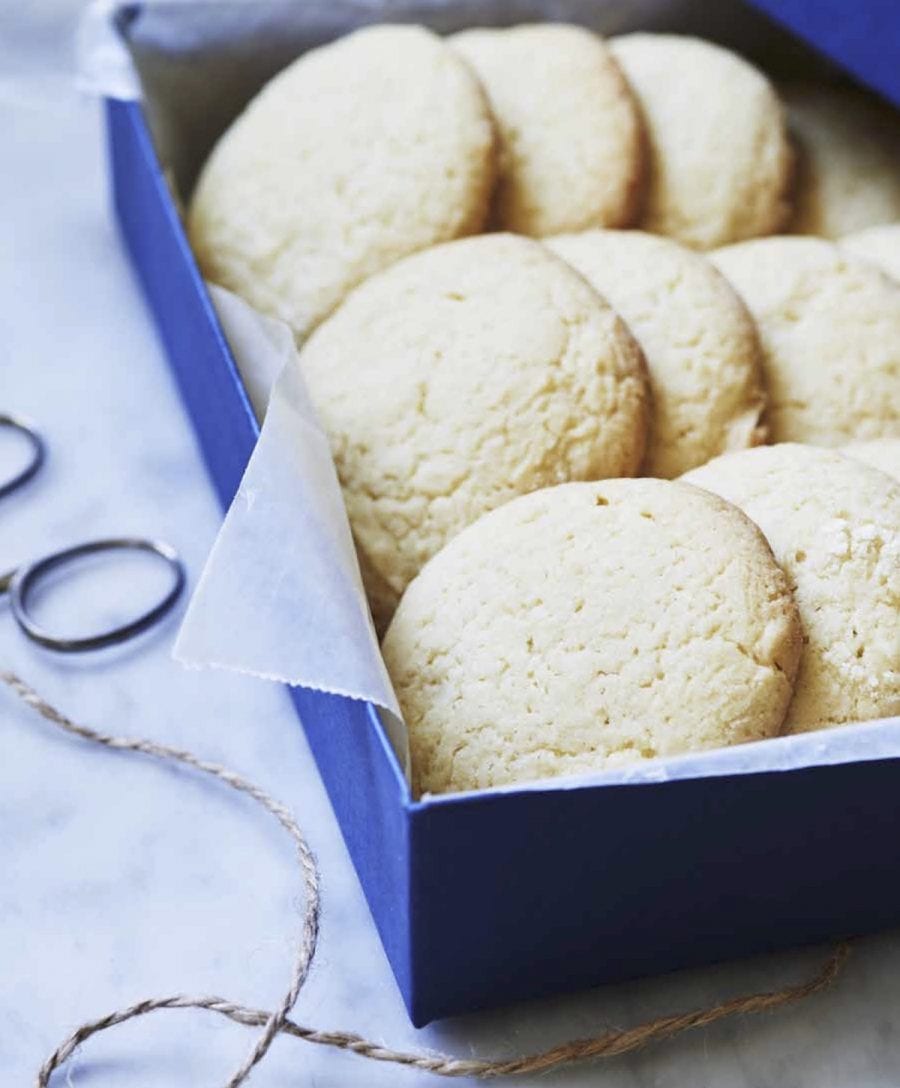
For my book, American Cookie, I interviewed a half dozen cooks who were known for tea cakes, and none of them would offer their recipes. It was through sheer experimentation that I figured out how to make them. And in that journey, I learned of their unique place in the South where family stories were swapped and politics discussed. In fact, one of our country’s earliest tea cakes were the Edenton Tea Party Cakes, served in Edenton, North Carolina, in 1774 by a group of women protesting the British tax on imported tea. They baked these revolutionary little cakes, but they didn’t sip British tea that day.
Tea cakes are most associated with the enslaved people of the South who baked them for slaveholders—and for their own families, too. When many of them left the South after the Civil War, they took their recipes with them; tea cakes have been baked and talked about in African American kitchens for generations.
Today, old-fashioned tea cakes are still made for family reunions and holidays. And we also bake little cakes like the 1830s’ Marguerites—tiny sugar cookies dabbed with jam and cloaked in browned meringue. Or we bake ladyfingers, or cookies called “teas.” My grandmother in Tennessee was known for her cookie called Purcell’s Afternoon Teas. I have tried to find the origin of this recipe but have come up short. I remember it as my grandmother’s cookie for special guests. It was topped with a pecan half or a candied cherry at Christmas. Baking them each year reminds me of her.
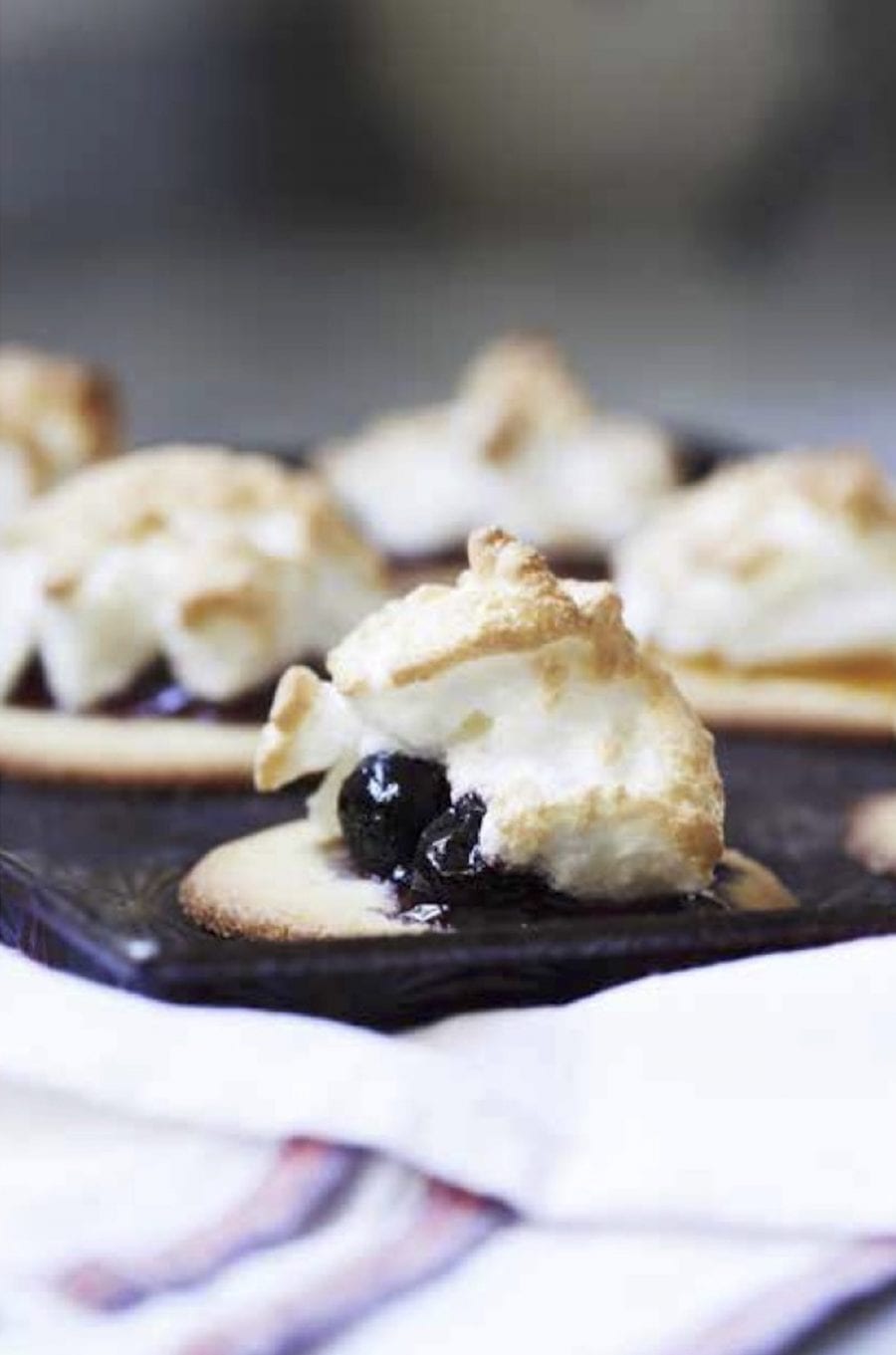
Just take a glance at nineteenth- and twentieth-century cookbooks and you’ll see that tea cakes have been in the room throughout American history. They were served before the Revolutionary War, when presidential campaigns began, during Prohibition and the women’s suffrage movement, for religious gatherings, at barn raisings and baptisms, and to console after funerals. But tea cakes themselves are more backstage than front. They’re soft, little cakes with a rich history that tie us to the generations of people who baked them before us.
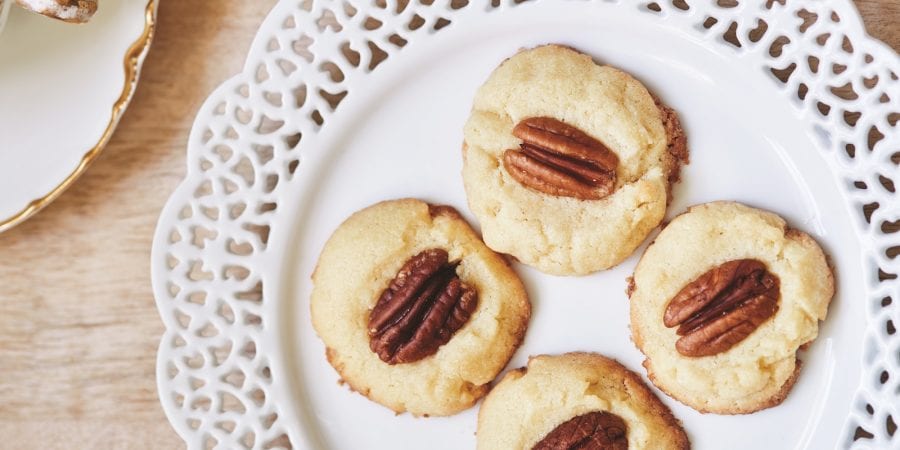
Purcell’s Afternoon Teas
My grandmother Dee made these cookies all year for special events. The recipe is old enough that it most likely originated with her mother. Dee baked them for birthdays, summer parties, and ladies’ events like book club and bridge and church. They pair well with iced tea, and hold their own on the Christmas sideboard with all the fruitcakes, decorated cookies, and eggnog.
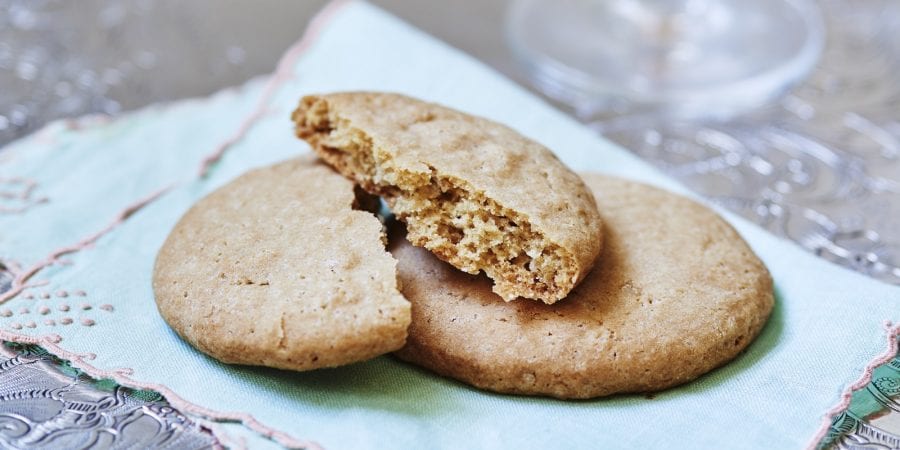
Edenton Tea Party Cakes
On October 25, 1774, Penelope Barker invited fifty-one women from five counties in Eastern North Carolina to come to the Edenton home of Elizabeth King for a party. There would be tea cakes, but no tea because the ladies were protesting the British Tea Act of 1773. They signed a petition to say “in proof of [our] patriotism” they would not bring British tea or cloth into their homes “until such time that all acts which tend to enslave our Native country shall be repealed.” It was a silent protest and served as the first recorded organized political event for women.
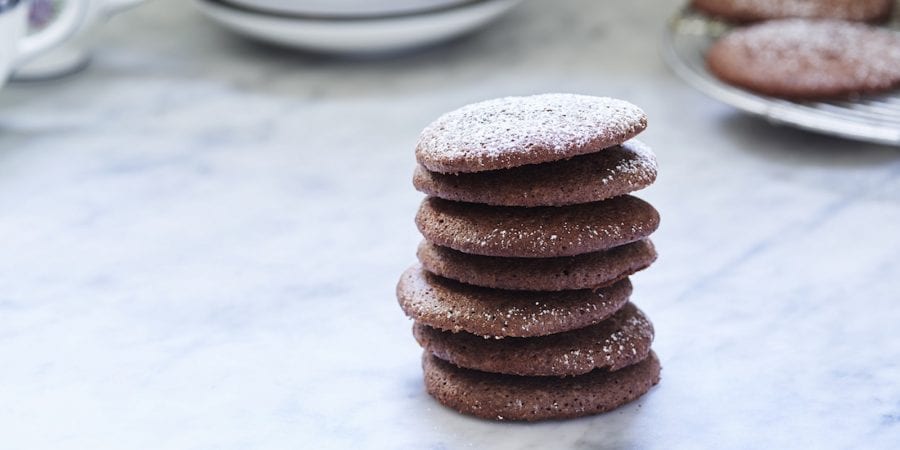
Chocolate Cardamom Tea Cakes
It’s doubtful that the cooks of yesteryear incorporated chocolate or cardamom into their tea cakes. When chocolate did finally make its way into cake baking, it was first as a glaze—think the Boston Cream Pie—and then in chunks (Toll House Cookies, for instance). Today, it’s everywhere. In this recipe, the cocoa serves as a type of flour, adding color and flavor.
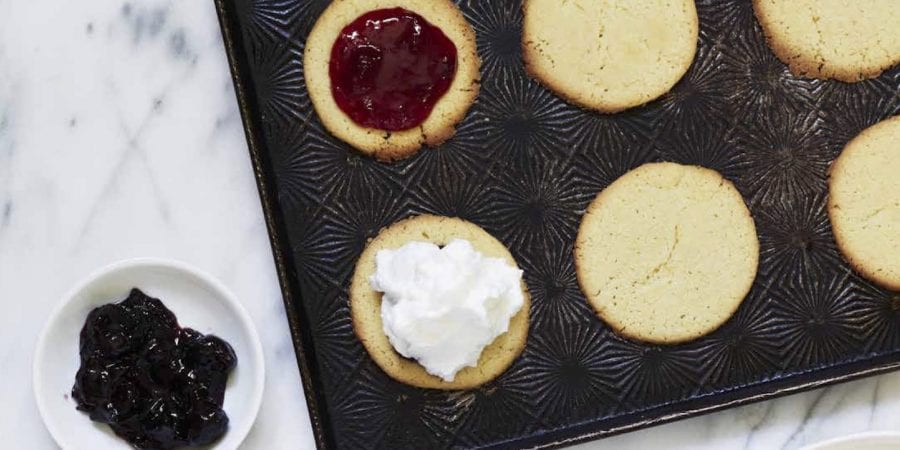
Marguerites
If you top a nutmeg-scented sugar cookie with a dab of fruit jam, then pile on meringue and bake until lightly browned, you have a Marguerite. This was a cookie baked in wealthy households where sugar was available and jam was put up from summer fruit. The following recipe is adapted from one in The Carolina Housewife by Sarah Rutledge, published in 1847. It’s remarkable that nearly 200 years later her method has stood the test of time.
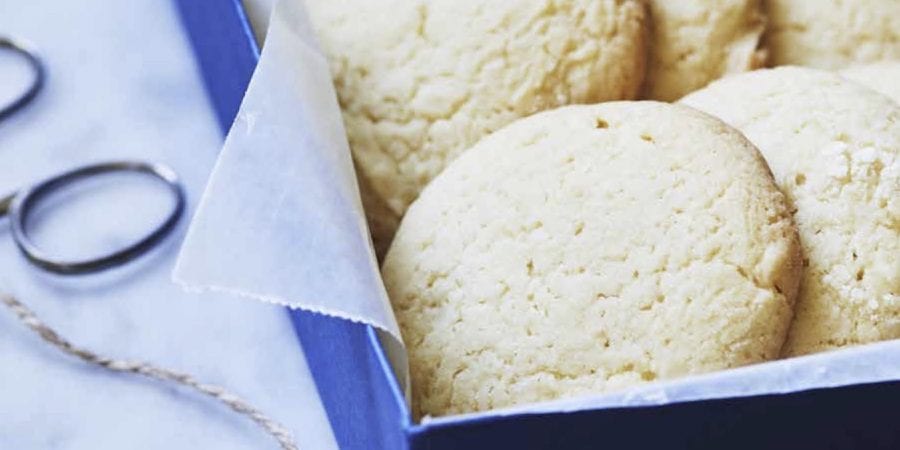
Old-Fashioned Tea Cakes
If we go back to 1872 when Annabella P. Hill wrote her book, Mrs. Hill’s Southern Practical Cookery and Receipt Book, tea cakes were leavened with a little baking soda, rolled thinly, and baked in a hot oven. You could say they were offshoots of British tea “biscuits” or cookies, except they had been Americanized with the addition of this new leavening.
The Edenton Tea Party Cakes, Old-Fashioned Tea Cakes, and Marguerites recipes appear with permission from American Cookie, by Anne Byrn (Rodale/Penguin Random House, 2018.)
This story was originally published in the November 2018 Issue.
share
trending content
-
Get To Know Roanoke, Virginia
-
Shrimp and Grits: A History
by Erin Byers Murray -
New Myrtle Beach Restaurants Making Waves
-
FINAL VOTING for Your Favorite Southern Culinary Town
-
New Restaurants in Arkansas
More From Key Ingredient
-
Sweet Talk: The Sensuous Power of Local Honey
-
Caramel Delights
-
Jason Stanhope’s Famous Celery Salad
-
Little Bursts of Summertime
-
A Better Butter Bean


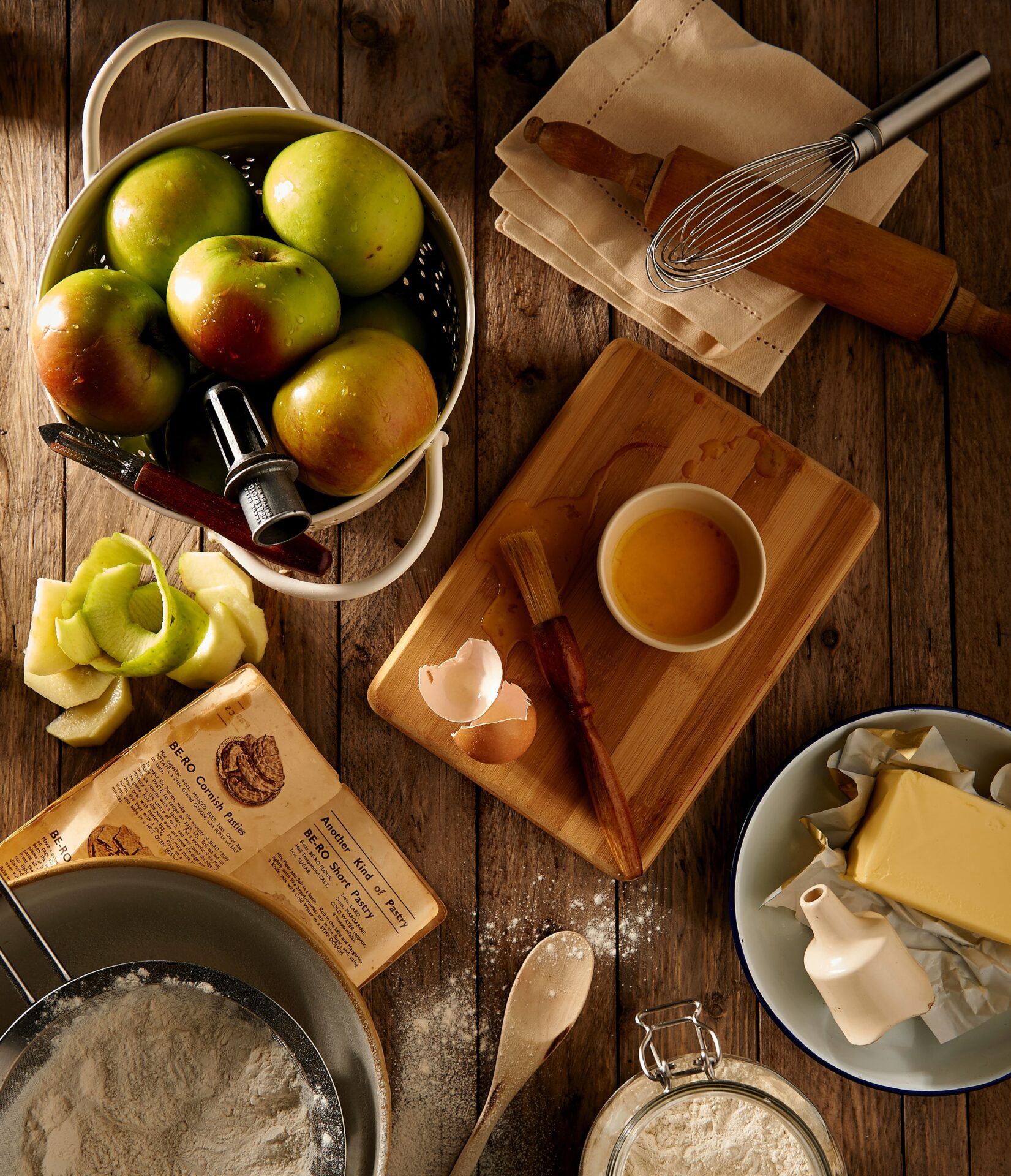





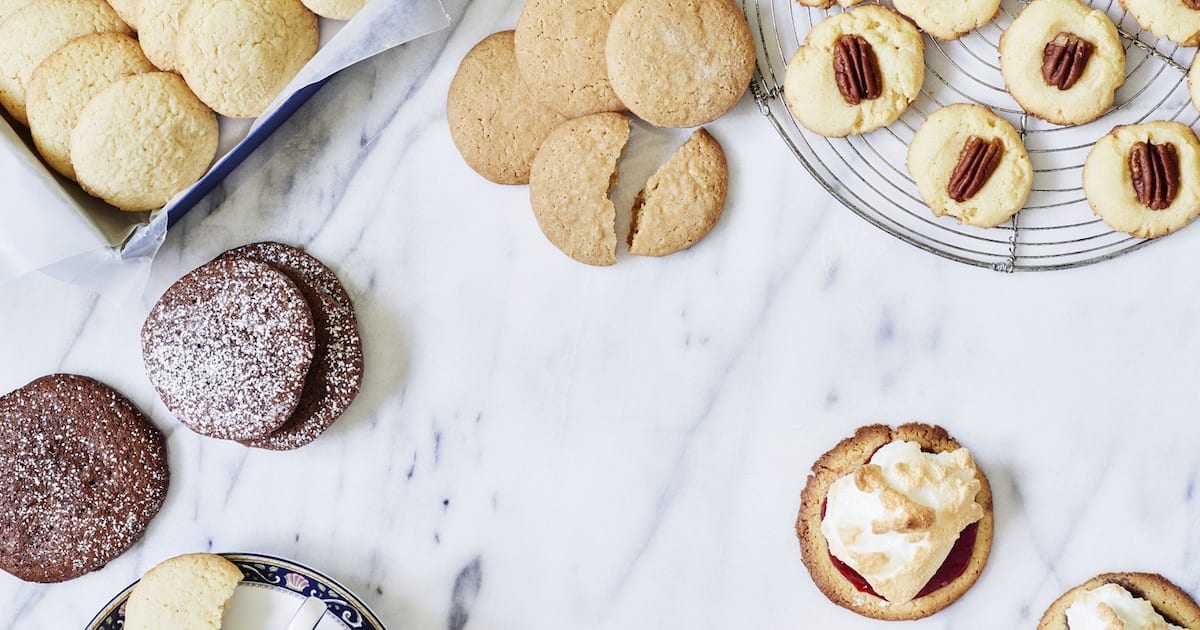

Comments 2
At my brother HomeGoing In November of 98,I was given the recipe,That was 130 years old,And still make My Ron’s Old Fashion TeaCakes for Holiday Days And Special occasions.I Am 75 Year Old African-American Man.Ron’s Old Fashion TeaCakes
We love to hear it, Ron! Keep baking!